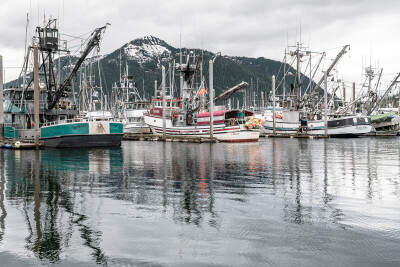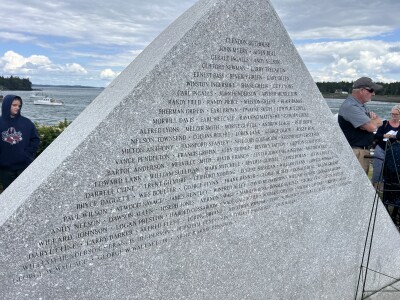Since the 1999 Marshall Decision, when the Canadian Supreme Court acknowledged the fishing rights reserved by indigenous tribes in the Canadian Maritimes in 18th century treaties, tempers have sometimes flared between the country’s non-indigenous and Indigenous fleets. Videos of Department of Fisheries and Oceans boats ramming and sinking Mi’kmaw skiffs that year in Burnt Church, New Brunswick, revealed a deep cultural divide and did not reflect well on the federal agency.
Fast forward to 2020, and the Indigenous lobster fishery in southwest Nova Scotia, where non-indigenous fishermen, on Tuesday Oct. 13, resorted to violent vigilantism to try to stop the Indigenous fishery. The non-Indigenous opposition says the season for non-Indigenous fishing is closed, so all fishing should be shuttered.
“We were called to a disturbance in New Edinborough,” said Andrew Joyce, spokesman for the Royal Canadian Mounted Police. “There were about 200 people there and they were preventing individuals from leaving, and damaging property. Then later in the day there was another incident in Middle West Pubnico.”
According to journalist Maureen Googoo, writing on the web service kukukwes.com, a “mob of non-Indiginous lobster fishermen trapped two Mi’kmaw fishermen inside a lobster pound,” One of the Mi’Kmaw fishermen, Jason Marr, said the mob had set fire to his van and were throwing rocks at the lobster pound.
Police spokesman Joyce noted there was criminal activity, but no arrests were made at the time because emotions were so high and the officers were vastly outnumbered.
“An investigation is ongoing,” he said, allowing that arrests may be made when emotions and resources make that possible. “At the end of the day, our job is to try and make sure everyone gets home safe,” Joyce said.
According to Arthur Bull, who has helped facilitate various dialogues between Indigenous and non-Indigenous fishermen since the 1999 Marshall Decision, the vigilantes do not represent all fishermen.
“It’s a much more complicated situation than what you read in the papers,” said Bull. “In the past, these groups have worked together. They have a lot more in common than they do differences.” Bull pointed out that the non-Indigenous fishermen are mostly Acadian, and most have Mi’kmaw ancestors.
“What I see is that the non-Indigenous fishers are under huge pressure. They are fighting wind farms, resource extraction, and attempts by big players like Clearwater to take this fishery out of the villages.”
According to Bull, the non-Indigenous lobstermen who are attacking the Mi’kmaw fishermen have cost themselves and all non-indigenous lobstermen the moral high ground with potential allies in these other battles because one can’t ignore the racism evident in their actions. “It’s unfortunate,” he said.
Bull points out that majority of Mi’kmaw bands in Nova Scotia, 10 out of 13, have signed fisheries agreements with DFO and are prospering in terms of jobs and dollar returns, but at the same time, he recognizes the bands’ desire to manage their own fisheries.
“That’s what I’ve supported all my life,” Bull said. “What we did in the past was to get all the fishers into a room talking, no regulators, no media, just the fishers. In the short term, things are awful, they just burned an entire fish plant in Pubnico. But looking forward, I’m still optimistic a solution can be found through respectful dialogue. We need the alliance of Indigenous and non-Indigenous fishermen, and the green movement, and together me might have enough strength to fight what's coming."







